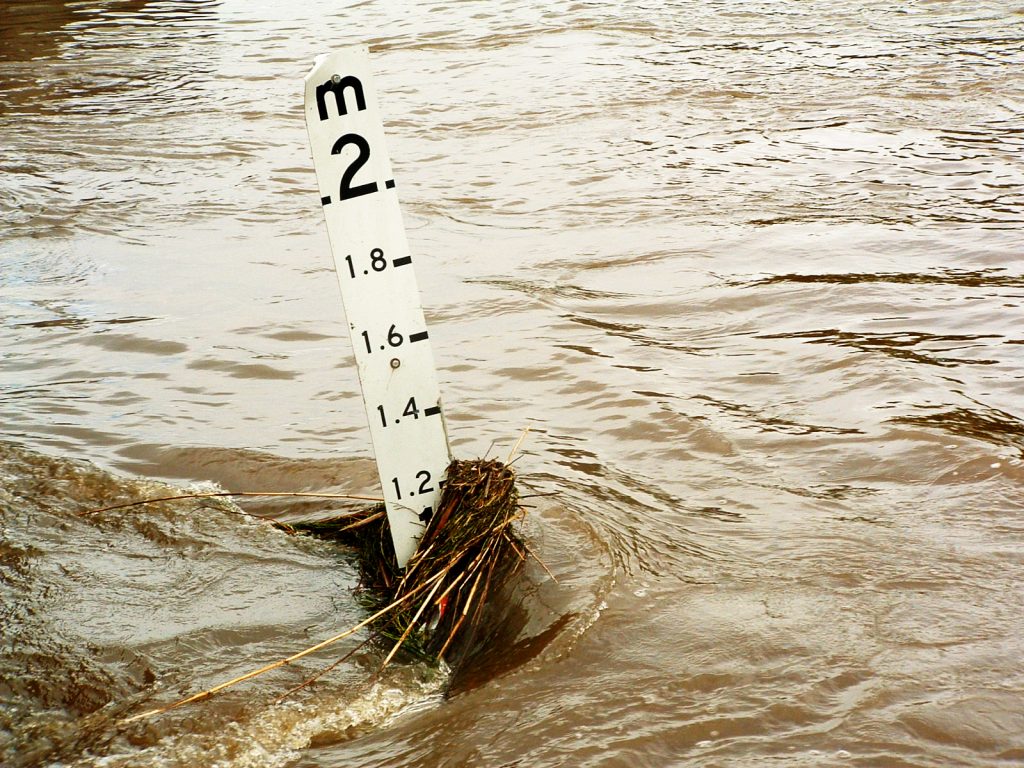 The National Flood Insurance Program (“NFIP”) is intended to provide affordable flood insurance on fair terms. The Federal Emergency Management Agency (“FEMA”) is responsible for administering and regulating NFIP. There are multiple requirements and policies that claimants must follow in order to be eligible to recover on their claim. The following lawsuit looks at the requirements necessary to prove flood damages under the terms of a Standard Flood Insurance Policies (“SFIP”).
The National Flood Insurance Program (“NFIP”) is intended to provide affordable flood insurance on fair terms. The Federal Emergency Management Agency (“FEMA”) is responsible for administering and regulating NFIP. There are multiple requirements and policies that claimants must follow in order to be eligible to recover on their claim. The following lawsuit looks at the requirements necessary to prove flood damages under the terms of a Standard Flood Insurance Policies (“SFIP”).
Construction Funding owned a piece of property located in Mandeville, Louisiana that was insured under a SFIP issued by Fidelity Insurance Company. Construction Funding claimed that this property suffered flood damage from Hurricane Isaac in August 2012. Construction Funding submitted a claim to Fidelity for a loss of approximately $76,000.
Fidelity is a participant in the NFIP and issues SFIP to NFIP participants. Although FEMA sets the terms of the SFIP, Fidelity is responsible for handling all claims arising under its SFIPs. Fidelity denied the claim, stating that the damages were unsubstantiated and there was insufficient proof that the damage was caused by Hurricane Isaac rather than a prior flood. Thereafter, Construction Funding filed a lawsuit against Fidelity. Fidelity claimed that Construction Funding was not eligible to bring the lawsuit because it had not complied with the SFIP’s terms.
 Louisiana Personal Injury Lawyer Blog
Louisiana Personal Injury Lawyer Blog


 You may think that your company would be pleased if you try to comply with company policies. However, this is not always the case, especially when following policies can lead to adverse outcomes for the company, such as delayed flights or lost profits.
You may think that your company would be pleased if you try to comply with company policies. However, this is not always the case, especially when following policies can lead to adverse outcomes for the company, such as delayed flights or lost profits.  It’s the subject of Lifetime Channel movies but something that no parent ever wants to believe would ever really happen. A teacher, a person in authority over minors, takes advantage of a student and engages in sexual misconduct. When this happens, is it ever appropriate to apportion some percentage of fault to the student? In a recent lawsuit out of Calcasieu Parish, the school board attempted to answer that question in the affirmative, but was taught a different lesson by the Louisiana Third Circuit Court of Appeal.
It’s the subject of Lifetime Channel movies but something that no parent ever wants to believe would ever really happen. A teacher, a person in authority over minors, takes advantage of a student and engages in sexual misconduct. When this happens, is it ever appropriate to apportion some percentage of fault to the student? In a recent lawsuit out of Calcasieu Parish, the school board attempted to answer that question in the affirmative, but was taught a different lesson by the Louisiana Third Circuit Court of Appeal.  Insurance policies can be varied, complex, and at times unintelligible. Policies are generally purchased for a time of need. Yet in many cases, the insurance company worsens a stressful event by denying coverage. Coverage can be denied for many reasons including when the claimant is an “uninsured motorist.” In a recent case out of Pointe Coupee Parish, an employee faced this label and a denial of coverage.
Insurance policies can be varied, complex, and at times unintelligible. Policies are generally purchased for a time of need. Yet in many cases, the insurance company worsens a stressful event by denying coverage. Coverage can be denied for many reasons including when the claimant is an “uninsured motorist.” In a recent case out of Pointe Coupee Parish, an employee faced this label and a denial of coverage.  When you pay for a home to be built, it can be a stressful experience. That experience becomes even more stressful when you have fully paid for the construction of that home and the contractor ceases construction without even completing half of the construction. In such a situation, it takes an excellent lawyer to figure out who exactly is at fault for the failure to complete the job and how to get the money already paid back from the contractors.
When you pay for a home to be built, it can be a stressful experience. That experience becomes even more stressful when you have fully paid for the construction of that home and the contractor ceases construction without even completing half of the construction. In such a situation, it takes an excellent lawyer to figure out who exactly is at fault for the failure to complete the job and how to get the money already paid back from the contractors. It can be complex to determine the superiority of claims when a piece of property has a mortgage and various judgments against it. Superiority of claims means the order in which money is to be paid to different parties who are all owed money from the property or individual who owns it. Most people want their claim to be deemed more superior than others because it can help them receive money from the property before someone else, which is especially important in cases where there is a limited fund of money.
It can be complex to determine the superiority of claims when a piece of property has a mortgage and various judgments against it. Superiority of claims means the order in which money is to be paid to different parties who are all owed money from the property or individual who owns it. Most people want their claim to be deemed more superior than others because it can help them receive money from the property before someone else, which is especially important in cases where there is a limited fund of money. Employers have a duty to provide their workers with reasonably safe working conditions. Whistleblower statutes protect employees from retaliation when they report violations of this duty. However, not every imperfection constitutes an unreasonable danger.
Employers have a duty to provide their workers with reasonably safe working conditions. Whistleblower statutes protect employees from retaliation when they report violations of this duty. However, not every imperfection constitutes an unreasonable danger.  Usually when you hear the phrase “adverse employment action,” it brings to mind actions such as being demoted or fired. However, under certain circumstances, it can extend to more unique actions. This includes refusing to accept an employee’s rescission of resignation.
Usually when you hear the phrase “adverse employment action,” it brings to mind actions such as being demoted or fired. However, under certain circumstances, it can extend to more unique actions. This includes refusing to accept an employee’s rescission of resignation.  If you are at school or work and notice several people who are soaking wet and wearing rain jackets, you would not have to be a detective or even a good lawyer to confidently make the judgment that it’s raining outside. Similarly, the legal concept of summary judgment used by courts is when the undisputed facts surrounding a claim lead to a court concluding the lawsuit as a matter of law, not facts. When that concept is applied to only certain elements or portions of a case or claim, it is called partial summary judgment. Partial summary judgment and its effects were of primary importance for a Baton Rouge, Louisiana, woman’s case.
If you are at school or work and notice several people who are soaking wet and wearing rain jackets, you would not have to be a detective or even a good lawyer to confidently make the judgment that it’s raining outside. Similarly, the legal concept of summary judgment used by courts is when the undisputed facts surrounding a claim lead to a court concluding the lawsuit as a matter of law, not facts. When that concept is applied to only certain elements or portions of a case or claim, it is called partial summary judgment. Partial summary judgment and its effects were of primary importance for a Baton Rouge, Louisiana, woman’s case. Double jeopardy is not a television marathon featuring Alex Trebek, but protection against it is fundamental to the United States legal system. In the criminal justice system, double jeopardy means being put on trial for the same charge twice; the Fifth Amendment to the United States Constitution bans it.
Double jeopardy is not a television marathon featuring Alex Trebek, but protection against it is fundamental to the United States legal system. In the criminal justice system, double jeopardy means being put on trial for the same charge twice; the Fifth Amendment to the United States Constitution bans it.